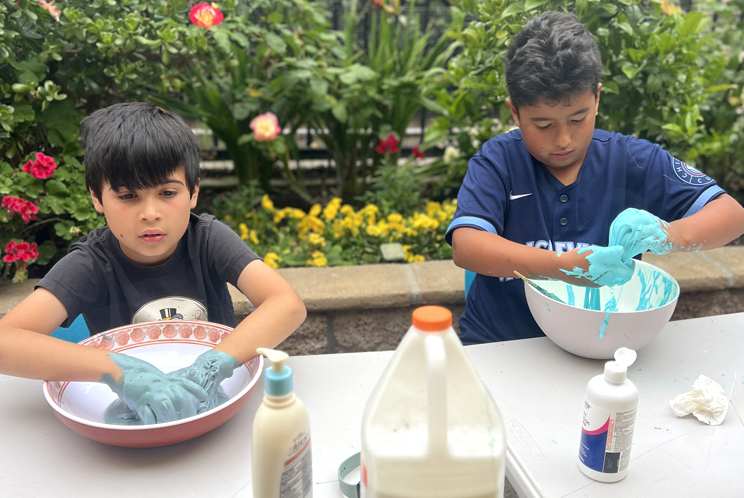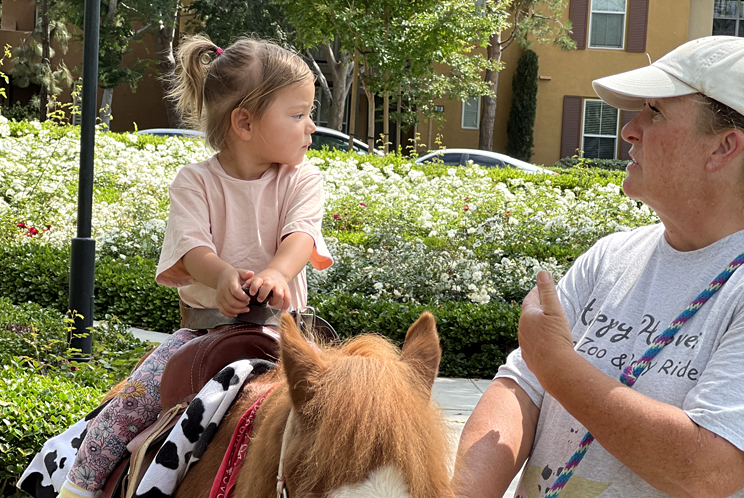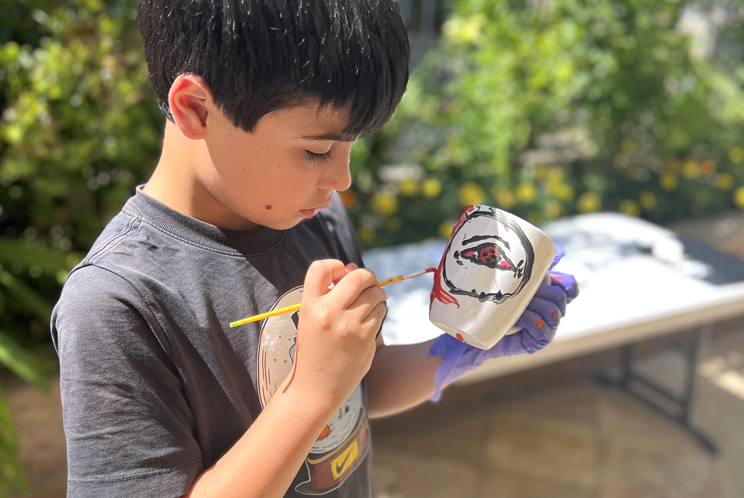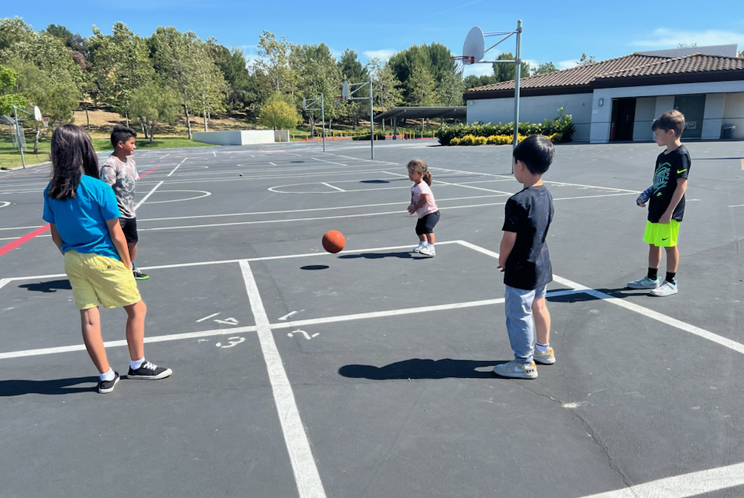Did you know that Emotional Intelligence (EQ) plays a major role in your child’s success in school and life? This summer, why not turn fun activities into learning experiences that help boost your child’s emotional skills?
Summer camp is the perfect opportunity for kids to develop emotional intelligence. Children can learn to manage their emotions, improve their empathy, and strengthen their social skills through engaging activities like team games, creative projects, and social challenges.
This guide highlights fun and practical camp activities designed to boost your child’s EQ while keeping them entertained all summer long.
Contents
- 1 What Is Emotional Intelligence and Why Does It Matter for Kids
- 2 Why Summer Camp is Ideal for EQ Development
- 3 Engaging Summer Camp Activities to Enhance Emotional Intelligence
- 4 Incorporating Art and Creativity
- 5 Nature-Based Activities for Emotional Growth
- 6 Building Emotional Vocabulary in Kids
- 7 Encouraging Reflection and Growth
- 8 Measuring Progress: How to Track Emotional Intelligence Growth
- 9 Addressing Challenges: What to Do When a Child Struggles with EQ
- 10 Tips for Parents to Reinforce EQ Skills at Home
- 11 FAQs: Enhancing Emotional Intelligence Through Summer Camp Activities
- 12 Final Thoughts: The Lasting Benefits of Building Emotional Intelligence Through Summer Camp
What Is Emotional Intelligence and Why Does It Matter for Kids
Have you ever noticed how some kids seem to handle stress or conflict while others struggle easily? That’s EQ at work.
EQ helps children understand and manage their emotions, boosting their academic performance and improving their ability to build strong friendships and resolve conflicts.
By developing these skills early, kids are better equipped for life’s challenges, leading to healthier relationships, improved focus, and overall well-being.

The Five Components of EQ
Emotional intelligence is made up of five key skills that work together to help children navigate their feelings and relationships effectively:
- Self-awareness: Recognizing and understanding their own emotions and how they affect thoughts and behavior.
- Self-regulation: Managing impulses and staying in control of emotional reactions, especially in challenging situations.
- Motivation: Using inner drive to set goals, stay positive, and persevere through difficulties.
- Empathy: Understanding and sharing the feelings of others, which builds deeper connections and compassion.
- Social skills: Communicating clearly, cooperating with peers, resolving conflicts, and building healthy relationships.
Why Summer Camp is Ideal for EQ Development
Summer camps create a unique environment where children can grow emotionally while having fun. The blend of structured activities and informal social time offers countless opportunities for kids to practice understanding and managing their emotions in real-life situations, making camp a natural setting for building emotional intelligence.
Did you know that summer camps designed as children’s enrichment programs provide more than just fun and games? These programs offer a unique space where kids can develop crucial emotional intelligence skills like empathy, self-awareness, and social communication through carefully crafted activities. By participating in cooperative games, creative arts, and mindfulness exercises within these programs, children learn to understand and manage their emotions in a supportive, engaging environment.

Safe Spaces for Emotional Expression
Camps provide supportive, judgment-free spaces where children feel comfortable expressing their feelings openly. Kids learn to identify and share emotions through group discussions, creative arts, or one-on-one mentoring, building self-awareness and confidence in a nurturing atmosphere.
Building Social Connections
Peer interactions at camp are vital in developing empathy and social skills. Through team activities, cooperative games, and shared challenges, children practice listening, cooperating, and resolving conflicts, essential skills that strengthen their ability to connect and communicate effectively with others.
Engaging Summer Camp Activities to Enhance Emotional Intelligence
Here are fun, hands-on activities designed to boost key emotional intelligence skills in kids while keeping them engaged and entertained.
Emotion Charades
Have children take turns acting out emotions like happiness, anger, surprise, or sadness without using words. The rest of the group guesses the emotion being portrayed. This activity sharpens their ability to recognize facial expressions and body language, which helps improve emotional understanding in real life.
Feelings Journals
Give kids notebooks to write or draw about their daily feelings and emotional experiences. Encourage prompts like “What made you happy today?” or “Describe a time you felt upset.” This practice promotes self-reflection and helps children build a stronger emotional vocabulary to express themselves clearly.
Empathy Role-Playing
Set up simple scenarios, such as a friend feeling left out or someone losing a toy, and have children act out how they would respond. This encourages them to think from others’ perspectives and practice compassionate responses, fostering empathy and social awareness.
Mindfulness and Meditation Sessions
Guide kids through short, age-appropriate mindfulness exercises like deep breathing, body scans, or listening to calming sounds. These sessions teach children to pause, focus, and regulate their emotions, which is especially helpful during stressful moments.
Cooperative Games
Choose games that require teamwork, such as building a tower together or completing an obstacle course in pairs. Emphasize communication, turn-taking, and helping each other, which build important social skills and reinforce the value of collaboration.
Incorporating Art and Creativity
Creative activities offer powerful ways for children to explore and express their emotions. Using art and storytelling, kids can communicate feelings that might be hard to put into words, helping to build emotional awareness and empathy in a supportive, imaginative setting.

Emotion Art Projects
Provide children with materials like paints, crayons, or clay and prompt them to create artwork that represents their current feelings or experiences. Whether drawing a storm to show anger or painting sunshine to express happiness, this visual expression helps kids process emotions and develop self-awareness in a fun, hands-on way.
Storytelling Circles
Gather children in a circle and encourage them to share stories about their day, feelings, or imaginary experiences. Listening to and telling stories helps kids practice empathy by understanding different perspectives, while also boosting their communication skills and confidence in expressing emotions.
Nature-Based Activities for Emotional Growth
Spending time outdoors offers unique opportunities for children to develop emotional regulation and resilience. Nature encourages calmness, mindfulness, and a connection to something larger than themselves, making it an ideal setting to practice managing emotions and building empathy.
Nature Walks with Reflection
During guided nature walks, encourage children to notice their surroundings and share how different sights, sounds, or smells make them feel. Prompt questions like “How does the breeze make you feel?” or “What do you notice about the trees?” help kids connect their emotions to the environment, fostering mindfulness and self-awareness.
Environmental Stewardship Projects
Involving children in hands-on projects such as planting trees, gardening, or community clean-ups teaches responsibility and care for the world around them. These activities promote empathy by showing children the impact of their actions and the importance of nurturing living things, while also building teamwork and a sense of accomplishment.
Building Emotional Vocabulary in Kids
Helping children express their feelings is essential for emotional intelligence. When kids can accurately name their emotions, they’re better equipped to manage them and communicate effectively with others.
Emotion Word Games
Use games like “Feelings Bingo” or “Emotion Matching” where children identify and describe different emotions using cards or pictures. These playful activities introduce new emotional words and help kids recognize subtle differences between feelings, expanding their emotional vocabulary in a fun way.
Daily Emotion Check-Ins
Set aside a few minutes each day for children to share how they’re feeling using simple prompts or charts. This routine encourages self-awareness and helps children practice expressing emotions regularly, making it easier for them to communicate their needs and experiences throughout the day.
Encouraging Reflection and Growth
Activities like gratitude circles invite children to share specific moments or things they are thankful for, which helps shift focus to positive experiences and builds emotional resilience.
Meanwhile, guided personal goal-setting exercises teach kids to identify achievable objectives, such as improving patience or making new friends, and reflect on their progress regularly.
These practices foster self-awareness and a growth mindset by encouraging children to think critically about their emotions and behaviors, ultimately supporting ongoing child development.
Measuring Progress: How to Track Emotional Intelligence Growth
Tracking EQ growth in children can be done through simple, everyday assessments and observations. Parents and camp counselors can use various methods to evaluate how well a child is developing emotional skills like self-awareness, empathy, and social interaction.
Simple Assessments or Observations Parents and Camp Counselors Can Use
To effectively track a child’s emotional intelligence growth, consider these practical assessment methods:
- Observe how children manage emotions during conflicts or challenging situations.
- Keep a journal or notes on specific emotional responses and social interactions.
- Use emotion checklists to identify feelings children recognize and express.
- Encourage children to self-report their emotions and reflect on their experiences.
- Monitor improvements in communication, empathy, and cooperation during group activities.
Setting Realistic Goals for EQ Development
When setting goals for emotional intelligence, it’s important to focus on achievable steps. For example, a goal might be to practice identifying and naming emotions, or to work on improving empathy by understanding a peer’s perspective.
Regularly reassessing these goals through observations and feedback can ensure that progress is being made and help children build on their emotional intelligence over time.

Addressing Challenges: What to Do When a Child Struggles with EQ
Recognizing when a child is having difficulty with emotional intelligence is the first step toward providing the right support and guidance.
- Recognizing Signs of Emotional Difficulties: Watch for frequent mood swings, trouble understanding or expressing emotions, difficulty making friends, or challenges in managing stress and frustration.
- Strategies for Support: Create a safe, consistent environment; model healthy emotional responses; teach coping skills like deep breathing; and use social stories or role-playing to practice emotional situations.
- When to Seek Professional Help: If emotional struggles significantly impact a child’s daily life, relationships, or learning, or if there are signs of anxiety, depression, or behavioral issues, consult a pediatrician, counselor, or child psychologist for assessment and guidance.
Tips for Parents to Reinforce EQ Skills at Home
Parents play a vital role in strengthening their child’s emotional intelligence by creating supportive environments and modeling healthy emotional behaviors.
- Encourage regular, open conversations about feelings by asking questions like, “How did that make you feel?” or “What do you need right now?”
- Model emotional regulation by calmly expressing your own feelings and demonstrating healthy coping strategies.
- Practice active listening to show your child that their emotions are valued and understood.
- Use everyday situations to teach empathy, such as discussing how others might feel in different scenarios.
- Reinforce problem-solving skills by guiding your child through conflicts and encouraging thoughtful responses.
FAQs: Enhancing Emotional Intelligence Through Summer Camp Activities
How to build emotional intelligence in kids?
Encourage self-awareness, teach emotion regulation, foster empathy, and provide opportunities for social interaction and problem-solving.
What are the 5 C’s of emotional intelligence?
The 5 C’s are: self-awareness, self-control, social awareness, relationship skills, and responsible decision-making.
At what age do kids develop emotional intelligence?
Emotional intelligence begins developing in infancy and continues to grow throughout childhood, with critical progress made during the early years (ages 2–7).
What age group benefits most from EQ-focused activities?
Children of all ages can benefit, but early childhood is a critical period for developing emotional intelligence.
How can parents reinforce EQ skills at home?
By modeling emotional intelligence, encouraging open discussions about feelings, and practicing empathy in daily interactions.
Final Thoughts: The Lasting Benefits of Building Emotional Intelligence Through Summer Camp
Integrating emotional intelligence activities into summer camp programs is essential for nurturing well-rounded children.
By combining fun, interactive experiences with intentional skill-building, such as empathy games, mindfulness exercises, and creative expression, camps create an environment where kids naturally develop vital emotional and social skills.
This approach supports young children’s immediate emotional growth and lays a strong foundation for their academic achievements, relationships, and overall well-being throughout life.
We’d love to hear your thoughts or experiences with building emotional intelligence in kids. Share your story or questions in the comments below!